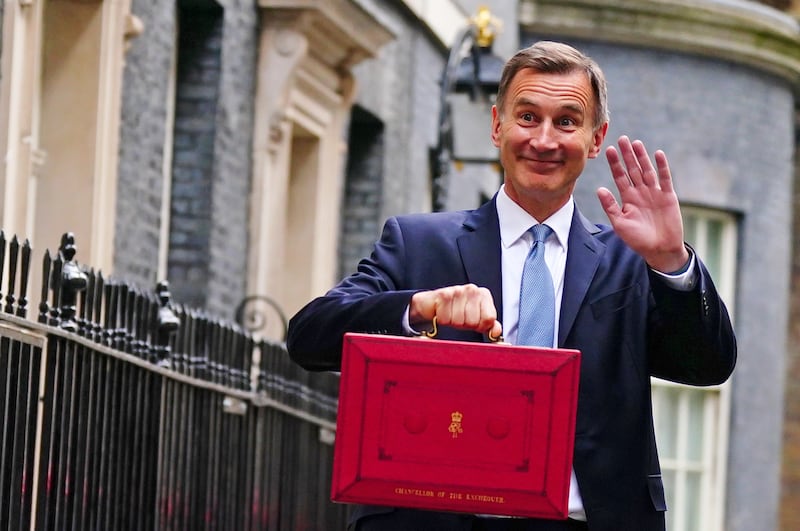The UK government will unveil an £800 million initiative aimed at enhancing technology within public services, particularly the National Health Service and police force.
This initiative is set to be included in Wednesday's Budget statement.
The Treasury's plan includes a range of technology-driven reforms, among them the deployment of drones by police for initial assessments of incidents such as road accidents, and the use of artificial intelligence to speed up processing medical scans.
Chancellor Jeremy Hunt said there was “too much waste in the system” as he announced on Sunday a series of measures to free up time for those on the front line of public services to focus on their core responsibilities such as education, public safety and healthcare.
The Treasury expects these measures to yield £1.8 billion in public sector productivity benefits by 2029.
The Chancellor said: “We shouldn’t fall into the trap of thinking more spending buys us better public services.
“There is too much waste in the system and we want public servants to get back to doing what matters most: teaching our children, keeping us safe and treating us when we’re sick.
“That’s why our plan is about reaping the rewards of productivity, from faster access to MRIs for patients to hundreds of thousands of police hours freed up to attend burglaries or incidents of domestic abuse.”
This strategy marks a shift from the high expenditure, high taxation model adopted during the coronavirus pandemic and in response to economic challenges following geopolitical events.
In the healthcare sector, the Treasury highlighted that artificial intelligence (AI) upgrades to more than 100 MRI scanners in England could significantly reduce scan times, benefiting more than 130,000 patients annually, including those awaiting cancer diagnosis results.
For law enforcement, the budget includes a £230 million investment towards technology that saves time, such as automated redaction of personal information during evidence collation and video interviewing of witnesses and victims.
A pilot project will also explore the use of drones for initial response to specific incidents, potentially saving significant officer hours annually.

The package also outlines investments in other areas of public service.
The justice system is set to receive £175 million for reforms that will digitise bundles of court documents for jurors and introduce new software to speed up parole decisions, potentially saving up to 55,000 hours of administrative time annually.
A substantial £165 million is earmarked to address the previous year's local authority overspend of £670 million on children's social care. This will create 200 additional child social care places, aiming to reduce the dependence on expensive emergency accommodation.
To combat fraud, the government plans to invest £34 million in expanding the use of AI across its operations. This initiative is expected to enhance the detection and prevention of fraud, with projected savings of £100 million.
The Department for Work and Pensions is slated for a £17 million investment to accelerate its modernisation programme, moving away from paper-based methods towards more efficient digital communication.
Planning will see a 30 per cent reduction in processing times through an AI pilot programme that aims to streamline the application procedure for officers.
Additional support for children with special needs is bolstered by a £105 million fund to set up 15 special free schools, enhancing educational opportunities for children requiring extra support.
These reforms are part of the government's broader effort to enhance efficiency and reduce reliance on expensive emergency interventions across sectors, aiming to improve service delivery and reduce administrative burdens.







